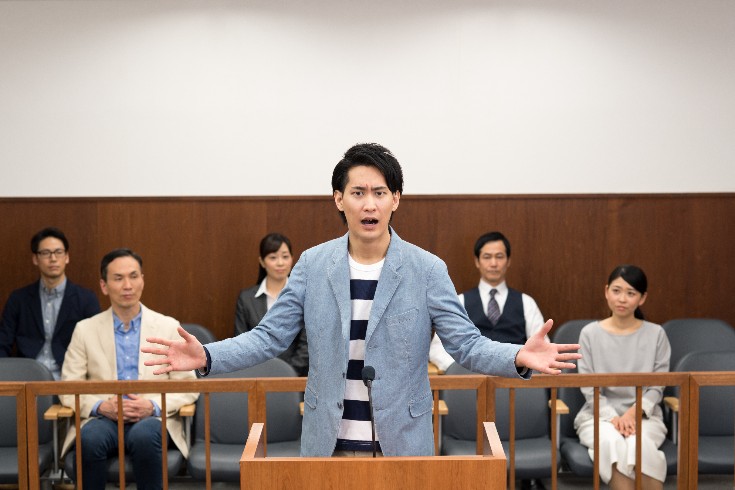Continuous Obligations of Exempted Business Operators for Foreign Investors under Japan's Financial Instruments and Exchange Act

Japan’s financial market is actively pursuing policies to attract foreign investment in an effort to establish its status as an international financial center. As part of this initiative, the “Act Partially Amending the Banking Act, etc., to Enhance and Ensure the Stability of Financial Functions in Response to Changes in the Socio-Economic Situation Due to the Effects of COVID-19 and Other Factors” was enacted on May 19, 2021 (Reiwa 3), and came into effect on November 22 of the same year. This law introduced a new category called “Special Business for Overseas Investors” under the Japanese Financial Instruments and Exchange Act.
The main purpose of this system is to enable funds, whose principal investors are foreign corporations or individuals residing abroad with certain assets, to conduct business in Japan by submitting a “notification.” This aims to reduce the barriers to entry for fund managers who serve professional investors abroad, thereby attracting foreign financial institutions and capital to the Japanese market and maximizing Japan’s function as an international financial hub. While the system primarily targets foreign investment managers entering the Japanese market, domestic operators meeting the same requirements are also permitted to use it.
This article aims to provide a detailed explanation of the ongoing obligations, reporting, and disclosure requirements that filers of the Special Business for Overseas Investors must fulfill under the Japanese Financial Instruments and Exchange Act and related laws. Through this explanation, we intend to offer practical guidance to foreign financial institutions and fund managers considering fund business in the Japanese market, as well as to those who have already filed notifications and strive to maintain daily compliance, to accurately understand the complex regulatory environment of Japanese finance and conduct appropriate business operations.
The Legal Framework and Positioning of Special Business Activities for Overseas Investors in Japan
Definition of Special Business Activities Under the Japanese Financial Instruments and Exchange Act
Special business activities for overseas investors are defined in Article 63-8, Paragraph 1 of the Japanese Financial Instruments and Exchange Act. Specifically, these activities involve the operation (self-management) of funds contributed or invested by “overseas investors etc.” who hold interests in a partnership-type collective investment scheme, or the solicitation or private placement of such interests to “overseas investors etc.” conducted at a business office or office established in Japan (self-solicitation).
When engaging in self-management, the funds in question must be contributed by “overseas investors etc.,” and must primarily consist of contributions from non-residents. Here, “primarily” means that more than half of the total contributions to the fund come from non-residents.
Scope and Requirements for “Overseas Investors etc.” Eligible for Special Business Activities
The range of “overseas investors etc.” eligible for special business activities is detailed in Article 63-8, Paragraph 2 of the Japanese Financial Instruments and Exchange Act and in Article 246-10 of the Cabinet Office Ordinance concerning Financial Instruments Business Operators, etc. (hereinafter referred to as “Business etc. Ordinance”), and is classified into the following three types:
- Foreign corporations or individuals residing abroad who meet the criteria set by the Cabinet Office Ordinance: This category includes foreign corporations and individuals residing abroad who meet any of the following criteria:
- At the time of acquiring interests in a partnership-type collective investment scheme, the individual is expected to have a net worth (total assets minus total liabilities) of at least 300 million yen and total investment-type financial assets of at least 300 million yen, and has had an account for trading securities or derivatives with a financial instruments business operator (including those equivalent under foreign laws) for at least one year.
- Individuals who are considered qualified investors under foreign laws.
- Qualified Institutional Investors (including those deemed equivalent by the Cabinet Office Ordinance): This category includes Qualified Institutional Investors (Type I Financial Instruments Business Operators, Investment Management Companies, Banks, Insurance Companies, Investment Corporations, Credit Cooperatives, etc.), as well as specified investors (investors deemed as specified investors under Article 34-3 or Article 34-4 of the Japanese Financial Instruments and Exchange Act) and funds primarily managed and operated for the purpose of managing and disbursing retirement pensions, etc., in accordance with foreign laws.
- Close affiliates of the Special Business Activities for Overseas Investors etc. notifier: This category is defined in Article 17-13-5, Paragraph 3 of the Japanese Financial Instruments and Exchange Act Enforcement Order and Article 246-10, Paragraph 3 of the Business etc. Ordinance as those who have a close relationship with the notifier. Specifically, this includes the notifier’s officers, employees, parent companies, subsidiaries, affiliate companies, asset management delegates, investment advisory delegates, their officers and employees, and relatives within the third degree of kinship of the notifier.
The broad definition of “overseas investors etc.” and the detailed requirements (asset amounts, years of experience, relationships) indicate that notifiers have an ongoing obligation to conduct investor due diligence and monitoring. In particular, the verification of individual asset requirements necessitates concrete documentary evidence, requiring notifiers to continuously confirm and manage whether investors maintain their eligibility after being deemed qualified or whether new acquirers are eligible in the event of a transfer of interests. This represents a significant compliance burden beyond mere notification obligations, and the complexity increases with the diversity of the investor base.
Ongoing Obligations of Special Business Reporting Operators for Foreign Investors in Japan
Special Business Reporting Operators for foreign investors in Japan are subject to a wide range of obligations to ensure that their business activities are conducted properly and continuously. These obligations are based on the fundamental purposes of the Japanese Financial Instruments and Exchange Act, which aim to maintain the fairness and transparency of Japan’s financial markets and protect investors.
Maintaining Organizational and Internal Control Systems
Firstly, applicants must secure managers with sufficient qualifications to carry out the business of financial instruments firms fairly and accurately. Additionally, executives engaged in management must understand and implement the content of related regulations and supervisory guidelines under the Japanese Financial Instruments and Exchange Act, and possess adequate knowledge and experience in compliance and risk management necessary for the fair and accurate execution of financial instruments business. It is essential to maintain an organizational structure and staffing that places the necessary personnel in each department for the proper execution of business and appropriately positions those responsible for internal management and control. In particular, the establishment of a compliance department (or personnel) independent from the sales division and ensuring that these personnel have sufficient knowledge and experience is crucial. Furthermore, it is necessary to secure personnel capable of creating, managing, and disclosing books and documents, reports, risk management, computer system management, trading management, client management, advertising review, client information management, complaint and trouble handling, and internal auditing.
Next, applicants are required to comply with laws and regulations, establish an internal control system, and ensure investor protection. Even if they do not join the Type II Financial Instruments Firms Association, they must create internal rules that conform to the content of the association’s articles of incorporation and other rules, and establish a system to comply with these internal rules. Internal rules should include guidelines on advertising displays, provision of gifts, investment solicitation, client management, severing ties with anti-social forces, and protection of personal information.
Finally, corporations conducting Special Business Activities for Foreign Investors, etc., are deemed disqualified if they do not have a business or office in Japan or if they have not appointed a representative within Japan. This implies that the establishment of a physical base within Japan is mandatory. For the main business or office (including the main business or office in Japan for foreign corporations) and the business or office conducting Special Business Activities for Foreign Investors, etc., the use of so-called virtual offices is not permitted. Furthermore, foreign corporations as applicants must appoint a representative or agent in Japan. While there are multiple references to the requirements for domestic business offices, it is particularly important for Special Business Activities for Foreign Investors, etc., that the establishment of a physical domestic base is mandatory, and virtual offices are not allowed. This represents a strict requirement to ensure substantial business activities and effective supervision by regulatory authorities, in line with the policy goal of reducing barriers to entry through the notification system, and it constitutes a significant initial investment and ongoing cost burden for foreign business operators.
Compliance with Conduct Regulations
Special business notification filers, such as foreign investors, are generally subject to the same conduct regulations as financial instruments business operators under Japanese law. The Japanese Financial Instruments and Exchange Act aims to protect investors and ensure the integrity of the capital markets by requiring registration for financial instruments business operators and imposing conduct regulations. Special business notification filers must also operate in accordance with the spirit of this law, ensuring proper business management. However, in these special business activities, it is often assumed that the clients are qualified institutional investors, and therefore, some of the conduct regulations may be exempted in such cases.
Other Ongoing Obligations
In addition to the above-mentioned obligations to maintain systems, filers have a duty to report various events that occur in the course of business operations to the competent authorities in Japan. This includes changes in officers, amendments to the articles of incorporation, becoming a party to litigation or arbitration, occurrence of accidents, and cases where the minimum capital amount is not met. Furthermore, prompt notification is also required when the continuation of financial instruments business becomes significantly difficult, or when an officer or key employee violates laws and regulations.
Below is an overview of the main ongoing obligations for Special Business Operators such as foreign investors.
| Type of Obligation | Specific Content | Related Legal Provisions/Supervisory Guidelines | Points to Note |
| Maintenance of Organizational and Internal Control Systems | Ensuring the qualifications, knowledge, and experience of managers and officers. Staffing necessary for business execution, establishment of an independent compliance department. Securing personnel for bookkeeping, risk management, customer management, and internal audits. | Japanese Financial Instruments and Exchange Act, Comprehensive Supervisory Guidelines for Financial Instruments Business Operators | Particular emphasis on the suitability of management and the independence and effectiveness of the compliance system. |
| Compliance with Laws and Regulations | Compliance with the Japanese Financial Instruments and Exchange Act and related laws. Establishment of internal control systems for investor protection. If not joining an association, creation and maintenance of internal rules equivalent to association rules, including provisions on advertising, solicitation, customer management, exclusion of anti-social forces, and personal information protection. | Japanese Financial Instruments and Exchange Act, Comprehensive Supervisory Guidelines for Financial Instruments Business Operators | Effective operation is required, not just formal rules. |
| Obligation to Establish Domestic Business Offices/Representatives | For corporations, it is mandatory to set up a business office or office in Japan. Virtual offices are not acceptable. For foreign corporations, it is mandatory to have a representative or agent in Japan. | Japanese Financial Instruments and Exchange Act Article 63-9, Paragraph 6, Item 2(i), Item 3(i) | For overseas businesses, establishing a physical presence is a significant initial investment and ongoing cost. |
| Compliance with Conduct Regulations | Financial instruments business operators are generally subject to the same conduct regulations. Exemptions may apply if the customer is a specified investor. | Japanese Financial Instruments and Exchange Act | The strictness of regulations is maintained from the perspective of investor protection. |
| Various Notification Obligations | Changes in officers, amendments to the articles of incorporation, becoming a party to litigation or arbitration, occurrence of accidents, falling below the minimum capital amount, suspension/resumption/abolition of business, dissolution, occurrence of business continuity difficulties, legal violations by officers, adverse dispositions based on foreign laws, etc. | Japanese Financial Instruments and Exchange Act Article 50, Paragraph 1, Item 8, Article 63-2, Article 63-3, Cabinet Office Ordinance Article 241, Article 241-2 | Submissions are generally required within one month or without delay after the occurrence of the change, necessitating a rapid response system. |
Detailed Reporting and Disclosure Requirements
Special Business Operators such as foreign investors are obligated to submit regular reports and disclose information to ensure transparency in their business operations and to protect investors under Japanese regulations.
Submission of Business Reports in Japan
Filers are required to prepare a business report for each fiscal year and submit it to the competent authority within three months after the end of each fiscal year. This submission is generally carried out using the Financial Services Agency’s Business Support Integrated System (hereinafter referred to as the “Integrated System”).
If the Integrated System cannot be used, it is permitted to submit in writing, accompanied by a document stating the reasons in detail. When using the Integrated System, it is mandatory to use a computer with a Japanese version operating system (OS) and the Excel format template downloaded from the Integrated System. If the Japanese representative of a foreign business entity must use a non-Japanese OS, they should contact the jurisdictional Finance Bureau in advance, and submission by mail (CD-R and paper) may be permitted.
The requirement for a “Japanese OS” can act as a hidden barrier in practice for foreign business entities amidst the push for digitalization. Many foreign business entities, operating in a global IT environment, typically use English OS and other standards, which means this requirement could force them to either set up additional IT infrastructure, secure personnel proficient in Japanese, or choose the inefficient method of paper submission. This highlights a gap between the policy goal of becoming an international financial center and the local constraints of actual digital infrastructure, potentially resulting in unexpected administrative costs and burdens for foreign business entities.
Moreover, there is an extension approval system in place for foreign business entities regarding the deadline for submitting business reports.
Public Inspection and Disclosure Obligations Under Japanese Financial Instruments and Exchange Law
Filers in Japan are required to promptly make new filings and changes available for public inspection, as well as to prepare explanatory documents for each fiscal year and provide them for public inspection within four months after the end of each fiscal year. These explanatory documents can be substituted with copies of the business report.
Disclosure can be carried out by keeping the documents available at the main business office, all branches where special business operations are conducted, or by posting them on the company’s website. While the Financial Services Agency of Japan does not guarantee the reliability of the filers, it does publish a list of filers, enabling investors to verify information.
The obligation for public inspection and disclosure is based on the fundamental purpose of maintaining market fairness and transparency under the Japanese Financial Instruments and Exchange Act. It reflects the regulatory authority’s intention that, even with a relatively lenient entry form such as the filing system, strict information disclosure is required for investor protection. It suggests that regardless of the form of entry, information disclosure and transparency to investors are non-negotiable principles in Japan’s financial regulation. The acceptance of website disclosure, in particular, meets the modern demand for speed and breadth in information provision, facilitating access to information for overseas investors and contributing to the overall transparency of the system.
Various Notification Obligations
Under Japanese Financial Instruments and Exchange Law and the Cabinet Office Ordinance concerning Financial Instruments Business, etc., there are various notification obligations established, including the succession of the status of special business notification filers, cessation of business, dissolution, and notifications related to special business conducted by financial instruments business operators .
When there are changes to the registered information, the change notification must be submitted, in principle, within one month after the occurrence of the change. Prompt notification is required for various events such as changes in officers, amendments to the articles of incorporation, becoming a party to litigation or arbitration, suspension, resumption, or cessation of business, dissolution, or when business continuity becomes significantly difficult, as well as when officers or key employees violate laws and regulations .
Below is a list of reporting and disclosure requirements for special business notification filers, including foreign investors.
| Type of Report/Disclosure | Submission/Publication Timing | Submission/Publication Method | Related Articles/Cabinet Office Ordinance | Notes |
| Business Report | Within 3 months after the end of each fiscal year | Principle: Electronic submission via integrated system. If not possible: Paper submission. | Japanese Financial Instruments and Exchange Law Article 63-8, Cabinet Office Ordinance Article 246-11 | A PC with Japanese OS and Excel format is mandatory. Foreign business operators have an extension system for submission deadlines. |
| Explanatory Documents | Within 4 months after the end of each fiscal year | Available at the main business office or posted on the company’s website. A copy of the business report may be substituted. | Japanese Financial Instruments and Exchange Law Article 63-4, Paragraph 3, Cabinet Office Ordinance | The purpose is to disclose information to investors and ensure transparency. |
| Contents of New Notifications/Changes | Immediately after notification | Available at the main business office or posted on the company’s website. | Japanese Financial Instruments and Exchange Law Article 63-8, Cabinet Office Ordinance | Prompt disclosure of notification information is required. |
| Notification of Succession of Status | Without delay | Submission to the competent Finance Bureau, etc. (Principle: Integrated system). | Cabinet Office Ordinance Article 241 | Required when there is a succession of status due to business transfer or merger. |
| Notification of Cessation of Business, etc. | Without delay | Submission to the competent Finance Bureau, etc. (Principle: Integrated system). | Cabinet Office Ordinance Article 242 | When the business is wholly or partially discontinued. |
| Notification of Dissolution | Without delay | Submission to the competent Finance Bureau, etc. (Principle: Integrated system). | Cabinet Office Ordinance Article 243 | When a corporation is dissolved. |
| Notification of Business Suspension (or Resumption) | Without delay | Submission to the competent Finance Bureau, etc. (Principle: Integrated system). | Japanese Financial Instruments and Exchange Law Article 63-2, Paragraph 3, Item 1 | When business is temporarily suspended or resumed. |
| Notification of Difficulty in Continuing Business | Without delay | Submission to the competent Finance Bureau, etc. (Principle: Integrated system). | Cabinet Office Ordinance Article 241-2, Item 1 | When business continuation becomes significantly difficult. |
| Notification of Officers/Employees’ Violation of Laws, etc. | Without delay | Submission to the competent Finance Bureau, etc. (Principle: Integrated system). | Cabinet Office Ordinance Article 241-2, Items 2, 4, 5 | When officers or key employees violate laws and regulations. |
| Notification of Amendment to Articles of Incorporation | Without delay | Submission to the competent Finance Bureau, etc. (Principle: Integrated system). | Cabinet Office Ordinance Article 241-2, Item 3 | When there are changes to the contents of the articles of incorporation. |
| Notification When Becoming a Party to Litigation or Arbitration | Without delay | Submission to the competent Finance Bureau, etc. (Principle: Integrated system). | Cabinet Office Ordinance Article 241-2, Item 6 | When becoming a party to litigation or arbitration, and at the conclusion of such proceedings. |
| Notification of Adverse Administrative Actions Based on Foreign Laws | Without delay | Submission to the competent Finance Bureau, etc. (Principle: Integrated system). | Cabinet Office Ordinance Article 241-2, Item 7 | When a foreign corporation or an individual residing abroad receives administrative actions based on laws equivalent to foreign laws. |
Submission Destinations and Procedures
Various notifications and reports must be submitted to the Finance Bureau or Finance Office that has jurisdiction over the principal place of business or office of the notifier (one original and one copy) .
It is noteworthy that for foreign businesses without a business office or office in Japan, the submission destination is centralized to the Securities Supervision Division 3, Financial Affairs Department of the Kanto Local Finance Bureau. This clear distinction based on the presence or absence of a domestic business office demonstrates that the Japanese financial authorities have established a supervisory system tailored to the actual conditions and locations of overseas businesses. The authorities flexibly adjust the supervisory system depending on whether the business has a physical location, in order to promote entry from abroad while maintaining effective supervision. In particular, the system where the Kanto Local Finance Bureau acts as a centralized point of contact for overseas businesses without a domestic base is designed to simplify procedures and facilitate access from abroad, and is also intended to enhance the efficiency of supervision over international financial activities.
Submissions are generally made using the Financial Services Agency’s electronic application and notification system, but paper submissions are also possible in unavoidable circumstances.
Although the special business activities for foreign investors are subject to a “notification system,” strict measures are taken against violations of laws and regulations.
Summary and Key Points to Consider
The Special Provisions for Foreign Investors is a groundbreaking system that promotes financial entry from overseas and contributes to the internationalization of Japan’s financial markets. However, the “notification system” does not imply lax regulation. On the contrary, maintaining a continuous organizational structure, complying with behavioral regulations, and fulfilling strict reporting and disclosure obligations are the lifelines for business continuity in the Japanese market.
Particularly, there are specific points of attention unique to foreign business operators, such as:
- Continuous verification of compliance with the complex definition of “Foreign Investors etc.”: Due to the diverse range of investors, it is essential to continuously verify and manage their eligibility.
- Obligation to establish a physical domestic base: Virtual offices are not recognized, and there is a need to set up an actual domestic business office, which becomes an initial investment and ongoing cost burden at the start of the business.
- Adaptation to the electronic reporting system based on a Japanese OS: The Financial Services Agency’s electronic submission system assumes a Japanese language environment, which may force additional measures or inefficient paper submissions depending on the IT environment of the foreign business operator.
The Japanese Financial Instruments and Exchange Act and related laws are complex, and specialized knowledge is essential for their interpretation and operation. It is strongly recommended that Special Provisions for Foreign Investors notification filers collaborate with experts such as attorneys and consultants familiar with Japanese financial law to ensure the fulfillment of ongoing obligations, compliance with reporting and disclosure requirements, and response to potential risks. With the support of experts, it is possible to avoid unforeseen legal compliance risks and continue business operations stably in the Japanese market.
Monolith Law Office has a wealth of experience in supporting numerous domestic and international clients in legal matters related to the Japanese Financial Instruments and Exchange Act. Our firm employs several English-speaking attorneys with foreign legal qualifications, enabling us to accurately explain the complex requirements of Japanese financial law within an international business context and provide practical advice. We are fully prepared to support your company’s business in Japan, ensuring smooth operations in compliance with the law.
Category: General Corporate




![[April 2023] Strengthening the Prohibition of](https://monolith.law/en/wp-content/uploads/sites/6/2026/01/a9e0aa1f810f4f4d3f23e1b55cd8b7bf.webp)
















